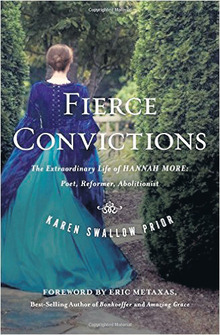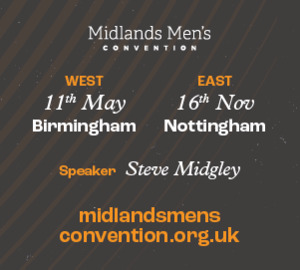Firebrand!
Karen Swallow Prior has filled a significant gap in the shelves of Christian biographies with this well researched and engagingly written biography of an extraordinary woman.
Sarah Allen, Hope Church, Huddersfield

FIERCE CONVICTIONS
The Extraordinary Life of Hannah More:
Poet, Reformer, Abolitionist
By Karen Swallow Prior
Thomas Nelson. 272 pages. £8.39
ISBN 978 0 718 021 917
Hannah More was well known to Christians in the 19th century, but up till now feminists and social historians were more likely to be familiar with her than the even averagely well-read Christian. So Karen Swallow Prior is to be applauded for bringing this timely story to the attention of today’s embattled church.
Hannah More was born to the daughter of a farmer and a poor school teacher in 1745, the fourth of five daughters. From such inauspicious beginnings she became a teacher, a poet and playwright, mixing with the literary and artistic greats of the 18th century, until, through the influence of John Newton and other evangelicals, she embraced the Bible. These new convictions transformed the direction of her life; she left her self-promotion and became involved in campaigns to improve the lives of others. With her sister Patty she began schools for impoverished rural children; she campaigned with Wilberforce and the Clapham Sect against slavery; she wrote Christian literature for all classes and sought to direct friends to Jesus.
The life of this remarkable woman is an exciting narrative. She threw herself into activities with a passion and was prepared to risk public humiliation for her gospel priorities. She did sometimes get things wrong and Karen Swallow Prior isn’t scared to explore some of her blind spots and failures. But even in her failures Hannah More is instructive, as we see how God used her creative attempts to engage and change a liberal culture; the Victorian age was shaped by Hannah More and others like her. And as our culture is so quick to write off the church’s attitude to women, it is instructive to listen in to one woman who was eager to use all her gifts for God’s glory in the public sphere. In short, don’t watch an adaptation of Jane Austen to understand this period – read this book instead!


